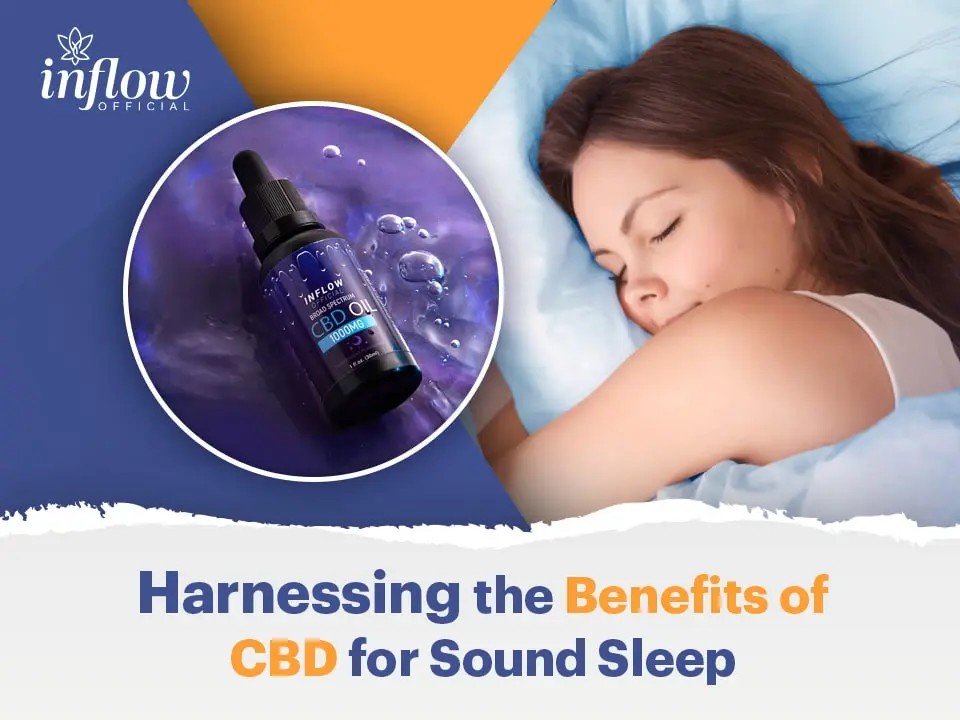
Cannabidiol, commonly known as CBD, has captured widespread attention as a potent natural remedy with a multitude of therapeutic properties. Extracted from the cannabis plant, CBD is one of many cannabinoids that have been used for centuries to manage various ailments, although it has only recently gained mainstream popularity. Unlike its counterpart, CBD is non-psychoactive, which means it does not cause the euphoric highs associated with marijuana. This unique feature makes CBD an appealing option for those seeking relief from pain, anxiety, inflammation, and other conditions without the mind-altering effects of marijuana or certain pharmaceutical drugs. This beginner’s guide delves into the holistic benefits of CBD, exploring its multifaceted uses in personal health and wellness.
From discussing its legal status to guiding you on safe and effective usage, this guide covers essential information to help you understand how CBD can fit into your health regimen. Whether new to CBD or considering it for a specific health goal, this guide will provide a comprehensive overview of this powerful compound, ensuring you are informed and ready to make the best choices for your needs. By the end of this guide, you will clearly understand CBD, its various forms, how it can benefit your health, and the considerations to remember to use it safely and legally. With the potential to transform the natural health landscape, CBD offers a promising alternative to traditional treatments, aligning with the shift towards holistic wellness practices.
What is CBD?
CBD, or cannabidiol, is one of over a hundred compounds known as cannabinoids found in the cannabis plant. Distinctively, CBD is non-psychoactive, which sets it apart, the cannabinoid known for causing the high associated with marijuana use. This key characteristic of CBD makes it an appealing option for individuals looking for the therapeutic benefits of cannabis without the psychoactive effects.
CBD’s popularity has grown substantially due to its potential to alleviate a wide range of symptoms and medical conditions:
- Pain Relief: CBD is commonly used to manage chronic pain. It works through various mechanisms in the body to reduce inflammation, minimize pain signalling, and decrease overall discomfort.
- Anxiety Reduction: It has been shown to significantly lower anxiety in both healthy individuals and those with anxiety disorders. Its effects are partly due to its ability to modulate cortisol release and react positively with serotonin receptors in the brain.
- Inflammation Reduction: CBD’s anti-inflammatory properties are well-documented. This makes it an effective compound in treating various conditions where inflammation is a key symptom, such as autoimmune diseases, inflammatory bowel disease, and more.
Additionally, CBD is used to treat conditions such as:
- Epilepsy: One of the most notable medical uses of CBD is its effectiveness in reducing the frequency and severity of seizures in some forms of epilepsy.
- Sleep Disorders: Many users find that CBD can help improve sleep quality, whether their sleep disturbances are caused by anxiety, insomnia, or other conditions.
- Neurodegenerative Conditions: There is growing research that suggests CBD may have neuroprotective properties, which can be beneficial in diseases like Alzheimer’s and multiple sclerosis.
How Does CBD Work?
CBD’s effects are primarily due to its interaction with the body’s endocannabinoid system (ECS). The ECS is a complex neurotransmitter and receptor system that regulates many vital processes, including mood, pain, appetite, and memory. CBD enhances the ECS’s natural functions by increasing cannabinoid receptor activity, reducing enzyme breakdown of endocannabinoids, and elevating the body’s levels of endocannabinoids.
Safety and Side Effects
CBD is generally considered safe and well-tolerated in humans. However, it can cause side effects in some people, such as dry mouth, light-headedness, and drowsiness. More severe side effects, although rare, can include changes in appetite and mood. CBD can also interact with other medications, so it is crucial to consult with a healthcare provider before starting to use CBD, especially if you are on medication or have underlying health issues.
The Legal Status of CBD in Australia
Understanding CBD’s legal status is crucial for anyone in Australia using or considering CBD products, whether for health improvement or recreational purposes.
Federal and State Laws
In Australia, the legal landscape for CBD was clarified with changes to the Therapeutic Goods Administration (TGA) regulations. As of 2021, low dose CBD products (up to 150 mg/day) can be purchased over the counter in pharmacies without a prescription, provided they meet strict safety, quality, and efficacy standards. However, this allowance only applies to CBD isolates; other forms of cannabis-based products, including those containing other cannabinoids, remain prescription-only.
State laws across Australia generally align with these federal guidelines, but some variances in enforcement and availability can occur from state to state:
- Some states have more readily available CBD products in pharmacies, aligning closely with TGA standards.
- Other states may have more stringent controls over how CBD products are marketed and sold.
- Compliance with TGA regulations is mandatory across all states and territories to ensure the legal sale and use of CBD products.
International Laws
Internationally, the legal status of CBD varies significantly:
- In countries like Canada and Uruguay, CBD is legal and regulated similarly to other cannabis products.
- In Europe, the legality of CBD varies; most countries permit its sale if it contains less than 0.2%.
- In some countries, like Singapore, any cannabis-derived products are strictly prohibited.
Compliance with Local Laws
For Australians, it’s essential to understand and comply with both federal and state laws regarding CBD. Non-compliance can lead to significant legal consequences, including fines or other penalties. Always ensure that any CBD product purchased complies with TGA regulations and is sourced from reputable suppliers to avoid legal issues.
Health Benefits of CBD
CBD’s interaction with the body’s endocannabinoid system (ECS) helps regulate many physiological and cognitive processes, contributing to its health benefits.

Pain Management
Mechanism: CBD alleviates pain through its interaction with the ECS, particularly by impacting cannabinoid receptor activity in the body, reducing inflammation—a primary source of pain—and facilitating the release of neurotransmitters that mute pain signalling.
Application: Effective for chronic conditions such as arthritis, back pain, and fibromyalgia.
Anxiety and Depression
- Effects: By modulating serotonin levels in the brain—similar to the action of anti-anxiety medications—CBD can help reduce symptoms of anxiety and depression.
- Benefits: Users often experience relief from anxiety disorders, including social anxiety and PTSD, and improvement in mood.
Neuroprotection
- Benefits: CBD has shown promise in reducing the frequency and severity of seizures, particularly in conditions like epilepsy. Its neuroprotective properties may also help manage diseases like Alzheimer’s and multiple sclerosis.
- Research: Ongoing studies are investigating the full potential of CBD in neurology, with promising early results.
Heart Health
- Cardiovascular Benefits: CBD may help lower high blood pressure and reduce heart inflammation, which can reduce the risk of heart disease and stroke.
- Mechanism: These effects are believed to stem from CBD’s antioxidative and stress-reducing properties.
How to Use CBD
Choosing the right CBD application method can maximize its benefits and suit individual lifestyle needs.

Oils and Tinctures
- Usage: Administered under the tongue for quick absorption into the bloodstream.
- Suitability: Best for those needing fast relief from symptoms like pain or anxiety.
Capsules and Edibles
- Benefits: Provide longer-lasting effects as CBD is released slowly during digestion.
- Preferences: Ideal for users who need consistent relief or dislike CBD oil’s taste.
Topicals
- Application: Applied directly to the skin.
- Uses: Effective for localized issues such as joint pain, muscle soreness, or skin conditions.
Vaping
- Onset: The fastest way to experience effects, as CBD enters the bloodstream immediately via the lungs.
- Consideration: It requires additional equipment (e.g., vape pen), and the effects may dissipate faster than other methods.
Recommended Dosages
Determining the correct CBD dosage is essential but can vary based on individual factors like body weight, metabolism, and the severity of the condition being treated.
- General Health: A standard 20-40 mg daily dose may suffice.
- Chronic Pain and Severe Conditions: Higher doses, possibly 100 mg per day or more, can be necessary.
- Sleep Disorders: Doses in the 40-160 mg range before bedtime have been used effectively.
Dosage Guidance
Start with a low dose and gradually increase it while monitoring the effects. Consult a healthcare provider to determine the best-starting dose and adjust as needed.
Read More: CBD and Holistic Healing: A Comprehensive Guide to Wellness
Choosing Quality CBD Products
Selecting high-quality CBD products is essential to maximize the benefits and minimize potential risks. Here are detailed guidelines on how to ensure the CBD products you purchase are safe and effective:
Check for Third-Party Lab Results
- Importance of Lab Testing: Reliable CBD products should always come with up-to-date lab results from a third party. These tests are crucial for verifying that the amount of CBD listed on the label is accurate and that the product is free from harmful contaminants such as pesticides, heavy metals, and moulds.
- Certificate of Analysis (COA): A COA should include detailed information about the cannabinoid profile of the CBD product, confirming its potency and the concentration of CBD and other cannabinoids. It should also indicate the product’s compliance with legal limits (0.3% or less for hemp-derived products in the U.S.).
- Lab Testing Standards: Ensure that the lab conducting the CBD testing adheres to ISO 17025 standards, which help guarantee that testing methods are accurate, consistent, and unbiased.
Full-spectrum vs. Isolate vs. Broad-Spectrum
- Full-Spectrum CBD: These products include all phytochemicals naturally found in the cannabis plant, including CBD, terpenes, flavonoids, and other cannabinoids. Full-spectrum products are preferred by those who seek the “entourage effect,” where multiple components work synergistically to enhance each other’s therapeutic effects.
- CBD Isolate: This form contains 99% pure CBD, with all other components from the cannabis plant removed. It’s an excellent option for individuals who need to avoid entirely or who are sensitive to other cannabis compounds.
- Broad-Spectrum CBD: A middle ground between full-spectrum and isolate, broad-spectrum products contain cannabidiol and all other compounds from the plant. This type is favoured by those who want the benefits of the entourage effect.
Choosing Reputable Sources
- Vendor Reputation: Purchase CBD products from reputable sources that are transparent about their manufacturing processes and product sourcing. Check customer reviews and ratings to learn about the experiences of others and gauge the reliability of the vendor.
- Sourcing Practices: Consider the geographical source of the hemp used in the CBD products. Hemp plants grown in the United States or European Union follow stricter regulations than those grown in other regions, often leading to higher quality.
- Extraction Methods: The method used to extract CBD from hemp plants also affects the quality of the product. CO2 extraction is one of the most effective methods to ensure a clean and potent product without harsh chemicals.
Additional Tips for Buying CBD
- Avoid Misleading Claims: Be wary of vendors who claim their products cure or treat diseases. Reliable CBD products will be marketed as supplements contributing to overall wellness, not medicinal cures.
- Packaging: Quality CBD products should be packaged to protect them from light and air, which can degrade cannabinoids over time. Look for products in dark, air-tight containers.
- Product Labeling: Labels should provide complete information, including the amount of CBD per serving, ingredients, manufacturer, batch number, and a barcode.
- Price Point: While price shouldn’t be the sole factor in judging the quality of a CBD product, extremely low prices might indicate poor quality. High-quality CBD often comes at a higher price due to the rigorous manufacturing and testing standards it must adhere to.
By following these detailed guidelines, you can ensure that you choose safe, effective, and high-quality CBD products that meet your health and wellness needs responsibly and effectively. Always take the time to do thorough research before purchasing to ensure that you are buying a product that is both safe and beneficial.
Conclusion
CBD offers a natural alternative for treating various health issues, from chronic pain to mental health disorders. You can safely and effectively integrate CBD into your wellness routine by correctly understanding how to use it—including selecting the proper administration method and dosage and staying informed about legal issues. Always ensure that any CBD product you purchase is from a reputable source and comes with a third-party lab test to guarantee purity and safety.



